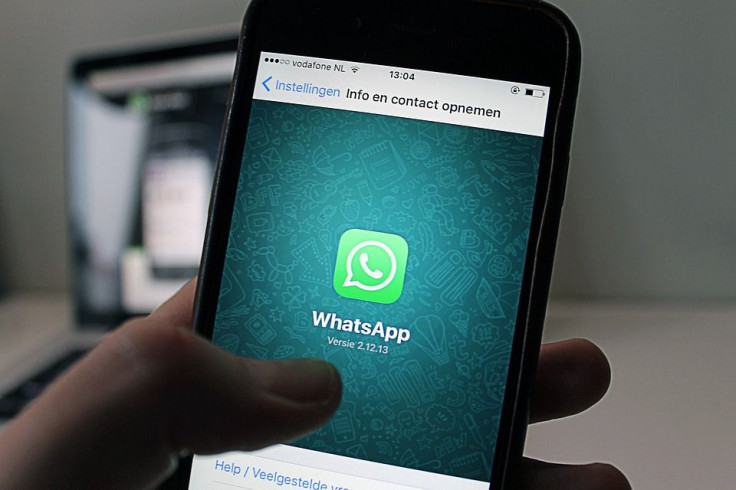Facebook's Making A Big Change To Its Plans To Monetize WhatsApp

Mark Zuckerberg is making an about face(book) on WhatsApp. As recently as 14 months ago, WhatsApp's management said advertising would be the "primary monetization mode for the company." But now, plans for ads in WhatsApp are on hold, the team that was working on advertising has been disbanded, and their code has been deleted, according to a report from The Wall Street Journal.
Facebook (NASDAQ:FB) was planning to start showing ads in WhatsApp Status -- its version of Instagram Stories -- this year, previewing a prototype in May. The company is still holding the potential for ads in Status in its back pocket, but there's no longer a timeline for the feature's release.
After acquiring the messaging app for $19 billion in 2014, investors may be wondering how Facebook plans to make money from the service now that it's grown to over 1.5 billion users.
The lost potential of Status ads
Let's take a quick look at what Facebook is giving up.
The best comparable for the potential of WhatsApp Status ads is Instagram Stories. Both features have roughly the same number of users, but Instagram's users are more heavily concentrated in the valuable North American market.
Facebook doesn't disclose revenue for Stories, but estimates peg the number as high as 10% of Facebook's total ad revenue. That could be as much as $7 billion for 2019. Instagram Stories ads have only been broadly available for three years.
The opportunity for WhatsApp might not be as big. As mentioned, Instagram users are more heavily concentrated in the U.S. and Canada where Facebook's average revenue per user (ARPU) was $34.55 in the third quarter, while WhatsApp's user base is bigger in emerging markets like India, Brazil, Indonesia, and Russia. Facebook's ARPU in Asia-Pacific was less than 10% of its U.S. and Canada user monetization, and it was even lower in the "rest of the world" reporting segment. What's more, it's not clear if users are as engaged on WhatsApp Status as they are on Instagram Stories, so there might not be as many advertising opportunities.
Additionally, marketers' ability to target ads on WhatsApp may not be as good as on Instagram. WhatsApp is, by its nature, more private. Instagram is a place where users practically broadcast their interests. And while Facebook may be able to use existing user data from its other apps for some, many WhatsApp users haven't connected their Facebook accounts to their WhatsApp accounts.
So, the potential for WhatsApp Status ads might not be too high -- maybe $1 billion or $2 billion in annual revenue built up over the next few years. Analysts expect Facebook to generate $86 billion in revenue this year, so the impact is minimal.

Where Facebook is focused with WhatsApp
Instead of advertising, Facebook is going to push its efforts to enable businesses to connect with consumers on WhatsApp.
Its first effort in that regard is WhatsApp Business. The company launched the app about two years ago and added a paid API a few months later. The product encourages businesses to respond to customers quickly and makes it easy for businesses both large and small to connect with consumers on WhatsApp.
Facebook last updated investors about a year ago, noting WhatsApp Business had 5 million active businesses. It's since launched an iOS version of WhatsApp Business. Its most recent feature is Catalogs, which makes it easy for users to find and discover products from the merchants they correspond with on WhatsApp.
There's still a lot of potential to grow the number of businesses on WhatsApp and using WhatsApp Business. Facebook estimates there are around 140 million businesses that use at least one of its apps.
In addition to WhatsApp Business, Facebook is working on developing a payment platform on WhatsApp, starting in India. The launch of the payments platform has been delayed, however, as the Indian government has concerns about data localization. Meanwhile, Facebook is looking for ways to extend its Facebook Pay platform to its other apps.
Facebook's focus on giving businesses more tools to connect with and sell to consumers on WhatsApp without invasive and pervasive advertisements could pay off in the long run. The company needs to build a habit of discovering, learning, and buying stuff on WhatsApp -- a habit that's common among Instagram users. The tech giant can offer paid tools for businesses now to facilitate that habit, and after making WhatsApp a place for commerce, it then might have a much more significant advertising opportunity with WhatsApp Status.
This article originally appeared in the Motley Fool.
Adam Levy owns shares of Facebook. The Motley Fool owns shares of and recommends Facebook. The Motley Fool has a disclosure policy.




















